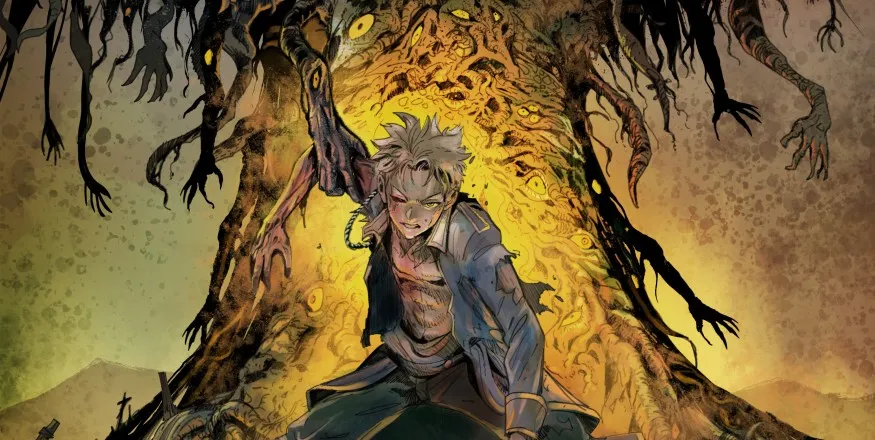Extract from The Six Seasons, Mvt. IV
Late Summer: The Annals of the Third Calamity, Sect. I
The world of the year four hundred and eighty-eight, after the first Zhermanniker, was fueled by a commerce of war as it had been for the past two hundred and twenty-five years. Smaller states were conquered by their neighbors; their neighbors were conquered by regional powers; regional powers were conquered by great powers. The chain in the rise and fall of nation-states would follow. After the Second Calamity concluded, two world orders were created with the idea that they would not wage war against one another, but provide incentives for collaboration. They were the Amerik-Europer League of Nations, the Aelon, and the Greater Co-Prosperity Confederacy of Eurasen, the Confederacy. One stretched from the boundaries of the New World to the heartlands of the central continent. Another spanned the lands of the Rus to the eastern hegemon of the Kan Dynasty. But whilst the peaceable latter spearheaded human ingenuity, with technologies of dreams, the former would corrupt themselves with constant, internal wars. Yet, despite all their differences in policies and culture, the two parties maintained cordiality as the founder of the global order, Sean Kennedy, intended. This cordiality existed before the tenth month of that year.
It would become the question of the millenia. Why was this sacred pact broken? Was it policy like that of the First Calamity? Was it vengeance like that of the Second Calamity? Was it an inevitability after all? Every possibility has been considered and we do not know for certain whether it was an impossibility which caused the Third Calamity or not. Our scholars often agree that it was ‘by the mistake of one nation’ that ‘a chain reaction of chaotic energy finally erupted after five decades of hibernation.’ But there has always been a problem with this answer. With any answer in history. How do we know? The truth always lies under a mirage that we trick ourselves to believe in. The cycle of conflict continued like they had forgotten the billions of lives lost to war. The creed of mankind, to cause death, continued. One should not be so naive to think that in this age, we have broken that cycle. We will find a way to disturb this peace. As humans, for an eternity, that is our only sin.
— Lycoris327Please respect copyright.PENANAFsfuJBNvkQ






















